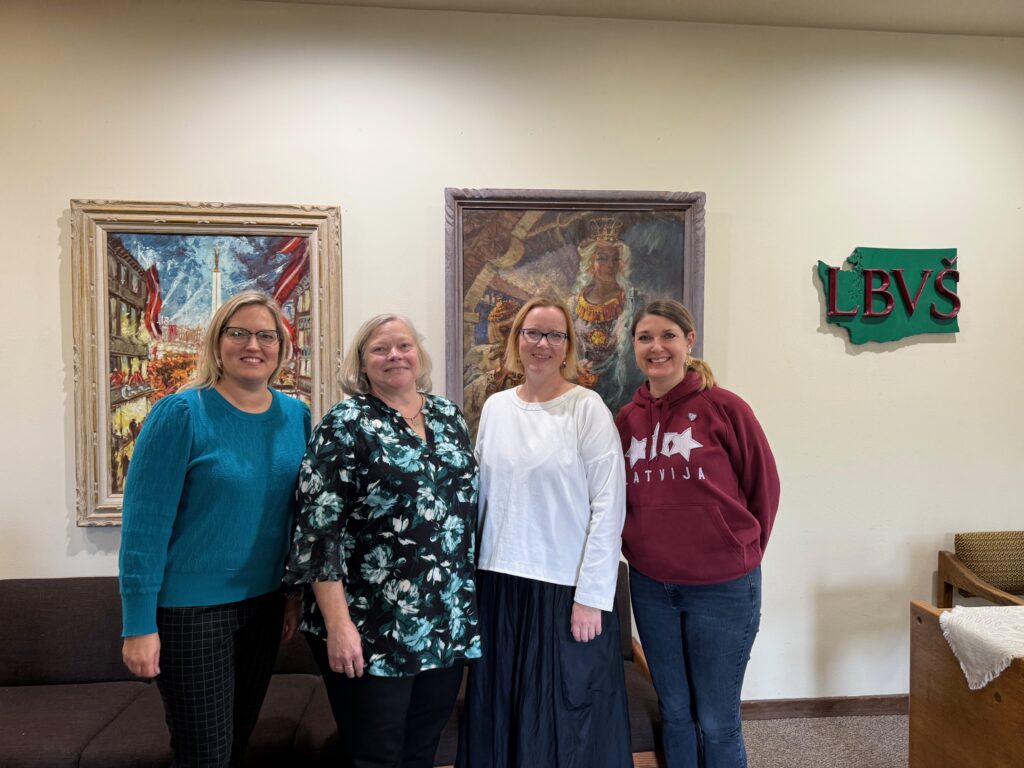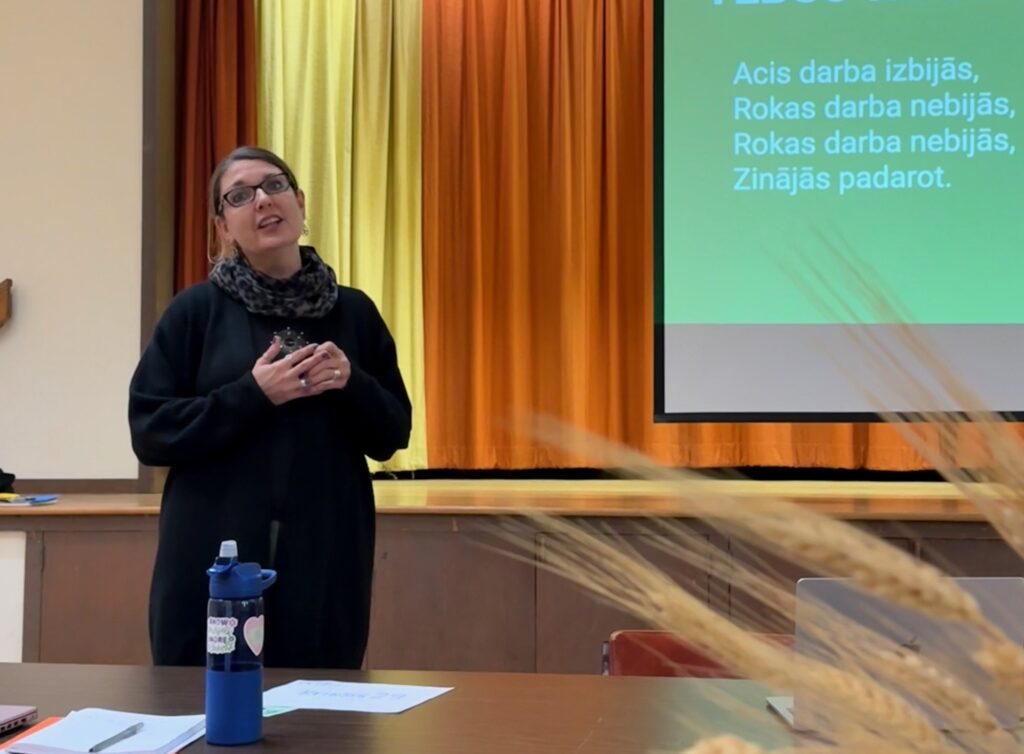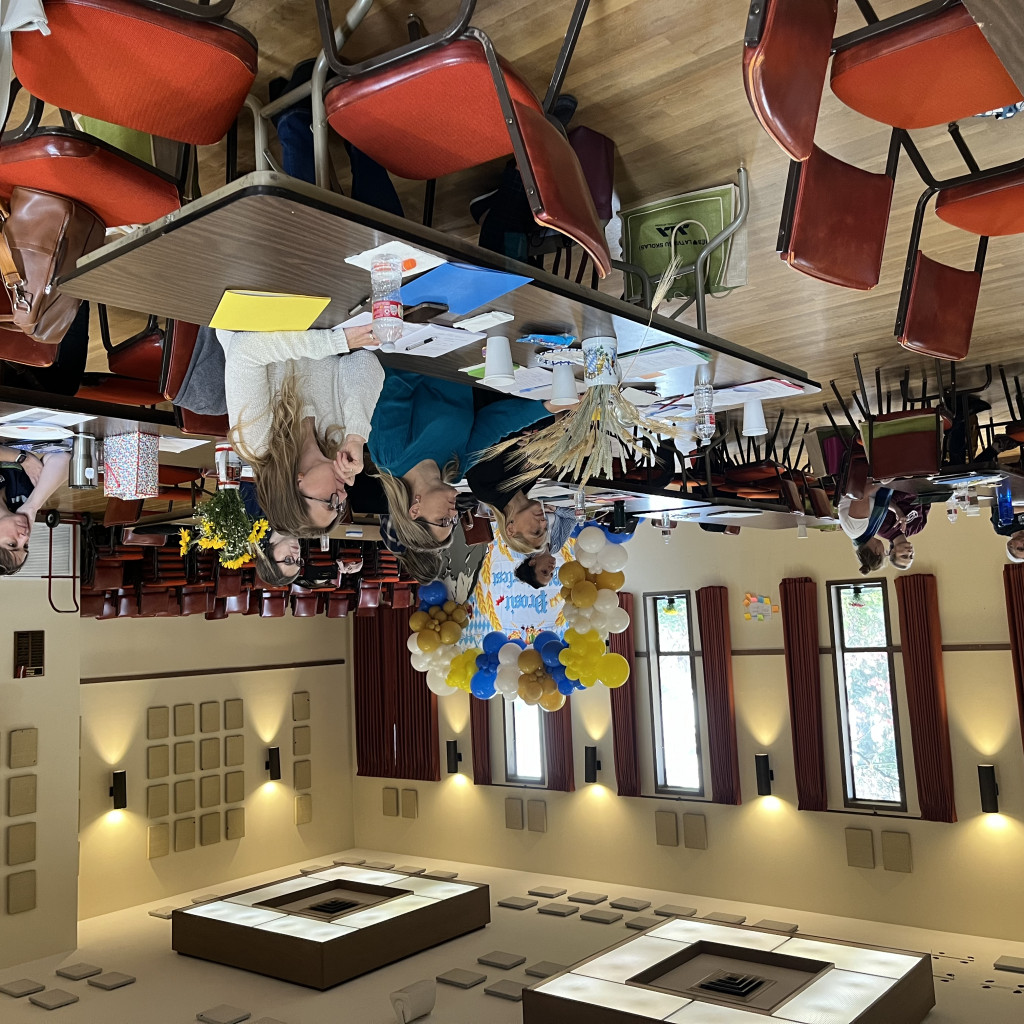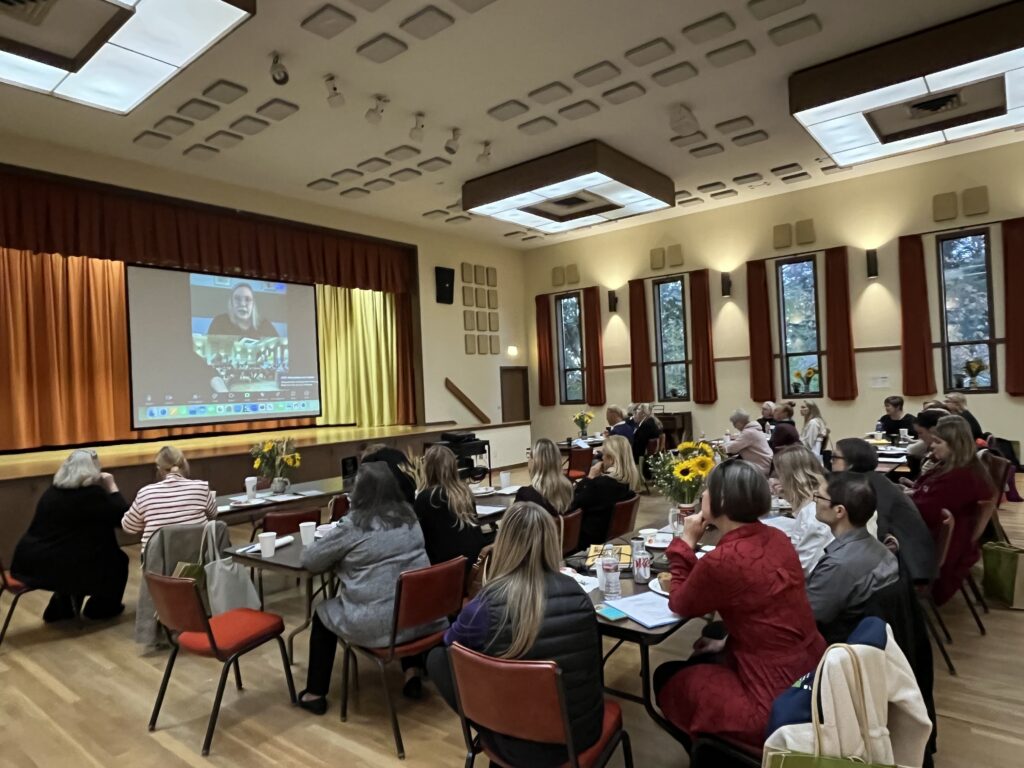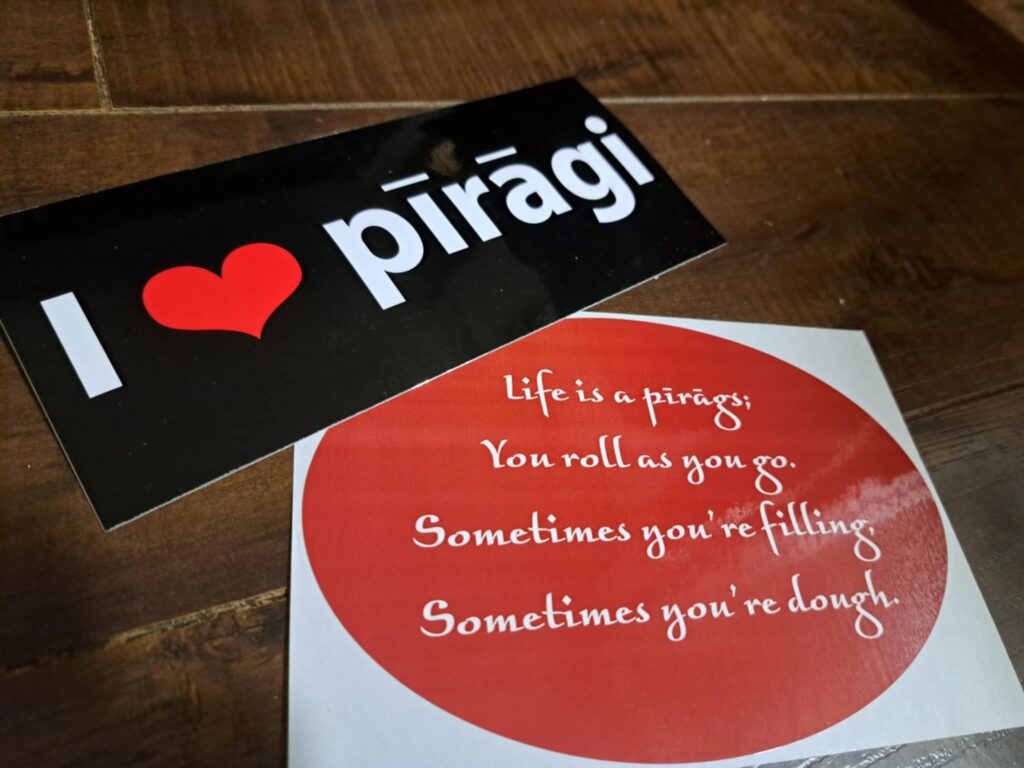ALA Teachers’ Conference in Seattle brings together education enthusiasts

The annual conference of Latvian language teachers organized by the American Latvian Association took place in Seattle from October 18 to 20. Teachers from Latvian schools across North America shared their experience, gained new ideas and strengthened mutual contacts. Three Latvian language teachers from Canada, Evisa Āboliņa from Ottawa, Diāna Briede from Toronto and Baiba Bumbiere from Montreal, took part in the conference with the support of the Education Department of the Latvian Academy of Canada.
During the conference, participants took part in a number of educational sessions, panel discussions and practical activities focused on the Latvian language and methods of teaching Latvian language and culture.
The Seattle Latvian community was a wonderful host, catering to their guests in true Latvian fashion. Despite the typically grey Seattle weather, early arrivals enthusiastically made their way to the city’s undisputed symbol – the Space Needle Tower. This iconic building, which has been a Seattle landmark since 1962, offered guests stunning views over the city and Puget Sound. Special thanks to Egija Jansone for organizing and leading the excursion.
Even the rainy weather could not dampen the enthusiasm of the participants, who could enjoy the panoramic view of the city from a height of 184 meters. Professor Guntis Šmidchens from the University of Washington shared a fascinating story about the important role of the Baltic Programme in preserving Latvian language and culture in the USA, especially
highlighting its contribution to education for the younger generation. The evening ended with a lively Oktoberfest celebration at the Seattle Latvian Centre, where a traditional German festive atmosphere mixed with Latvian hospitality, creating an unforgettable experience of being together.
During the conference, participants were able to meet with teachers from Latvian schools all across North America, sharing their experiences and exchanging ideas. Discussions ranged from common challenges faced by diaspora schools to innovative solutions to improve learning. The use of digital tools in distance learning and the preservation of cultural identity in the younger generation were particularly valuable topics for discussion.
Inta Šķinķe led bonding activities between the lectures, giving the participants a chance to have a break and build stronger bonds with each other. She also skilfully moderated a very important panel discussion on adult collaboration in education. It emerged that the lack of human resources is a pressing problem in almost all Latvian schools in North America. Evisa Āboliņa related that the Ottawa Latvian school already successfully involves guest teachers in the senior classes. An interesting solution could be to involve grandparents, Latvian students and other members of the Latvian community in the life of the school, for instance by telling stories to the school children.
The first day’s programme ended with a hearty dinner at the Watershed bar, where participants not only enjoyed delicious food, but also took part in an exciting Kahoot game, testing their knowledge about Latvian diaspora schools in America. This interactive activity not only created a fun spirit of competition, but also helped the participants to get to know each other better and deepen their understanding of Latvian heritage.
Language and identity issues in the contemporary context: On the first day of the conference, participants met online with author Inga Sindi, who shared her thoughts on the making of her book “Mamma says Apple, Papa says Apfel” and its resonance among readers. The book has become an important catalyst for conversations about preserving and teaching the Latvian language in multicultural families. Sinde revealed an interesting observation about varying perceptions of the book – while diaspora readers perceive it as a personal story that reflects their everyday experiences and challenges, Latvian readers have the opportunity to look into the world of these compatriots living in emigration and better understand their efforts to preserve their Latvian identity. Participants particularly appreciated the author’s openness and honesty when talking about language and identity issues.
Professor Guntis Šmidchen, Head of the Baltic Studies Programme at the University of Washington, gave a very fascinating talk about living folklore. Using his impressive collection of gloves as a prime example, he demonstrated how folklore is shaped, developed and transformed in a contemporary context. Schmidchen showed that folklore is not a frozen testimony of the past, but a living organism that is continuously replenished with new meanings and interpretations. The forms and elements of ancient folk tales appear in the urban legends and stories of today, and still try to convey important messages about life. His talk revealed how traditional patterns and motifs continue to live on and take on new meaning in today’s world, demonstrating that folklore is more than ethnography.
Latvian children in the USA and Canada have several opportunities to stay connected to Latvian culture and language. The three most important programmes – the Gaŗezers schools, the summer camp “Kursa” and “Hello, Latvia!” – have been serving this purpose for decades.
Gaŗezers, located in the state of Michigan, is the largest Latvian summer education institution outside Latvia. Established in 1965, it offers both a summer camp for children (GBN) and a summer secondary school (GVV). Sandra Kronītis-Sīpols, principal of the Garezers summer high school, gave a brief overview of the six-week programme for young people
aged 13 to 18, who study Latvian language, literature, history and folklore. The efforts of the management and staff of the Garezers to maintain high standards have paid off – the camp is ACA accredited, as it meets 300 quality criteria.
During the conference, participants were able to meet with teachers from Latvian schools all across North America, sharing their experiences and exchanging ideas. The discussion sessions covered both common challenges faced by diaspora schools and innovative solutions to improve learning.
The participants of the conference had the opportunity to watch a short film by Mara Pelēce about “Kursa” in Washington State, which has been operating since 1974 and just celebrated its 50th anniversary. The four-week programme is of particular importance to the Latvian community on the west coast. The aim is to allow each child to find his or her individual connection to Latvia. The small number of students helps encourage closer cooperation between pupils and teachers.
Līga Ejupe presented the opportunity to go to Latvia on a special educational trip for young people “Hello, Latvia!”. It is a two-week travel programme organised by the ALA for young people aged 13-15.
Participants visit historical sites in Latvia, meet with local Latvian teens, and take part in cultural events.
All three programmes not only teach language and culture, but also build a strong Latvian diaspora community. They help the younger generation to develop and preserve their Latvian identity, while creating a lasting emotional connection with Latvia.
Baiba Bumbiere

